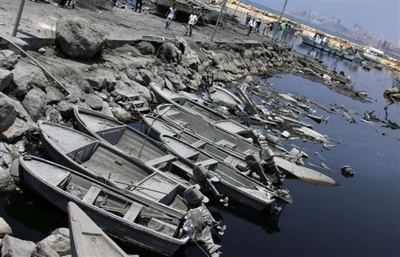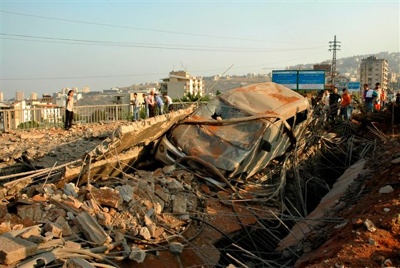The interesting thing about this
AP story about US military training for the Lebanese army, written by hardcore pro-Israel hack Barry Schweid, is that it makes absolutely no mention of the Lebanese reaction to the proposal — whether in the Lebanese government or Lebanese army. It’s clear what the idea is, though:
The administration is striving for a resolution that would end the conflict between Israel and Hezbollah, now in its fourth week, and also establish conditions for a lasting cease-fire. Many other countries favor an immediate cease-fire.
I put this paragraph in just to show Barry Schweid’s work: no question of the administration’s definition of a “lasting ceasefire,” and a throwaway about what other countries want — the implication being they want an immediate, but not a lasting, ceasefire.
But I digress. It continues:
The military training would be designed to help the Lebanese armed forces “exercise control and sovereignty over all of Lebanese territory once we have an end to the fighting in such a way that is durable,” McCormack said.
So how are we to know that the White House or Pentagon has even discussed this with the Lebanese armed forces? And who exactly is going to disarm Hizbullah? A US-trained Lebanese army? Will they train them like they did many armies and security services across the region — SAVAK in Iran during the 1960s and 1970s for instance? Or just supply them with tools like tear gas (riot-control police in Egypt) and legcuffs or electric batons (Saudi Arabia and elsewhere, used for torture? Is US policy really encouraging the Lebanese army to take on Hizbullah — i.e. start another civil war? I’m not surprised we don’t see a Lebanese general confirming this.


